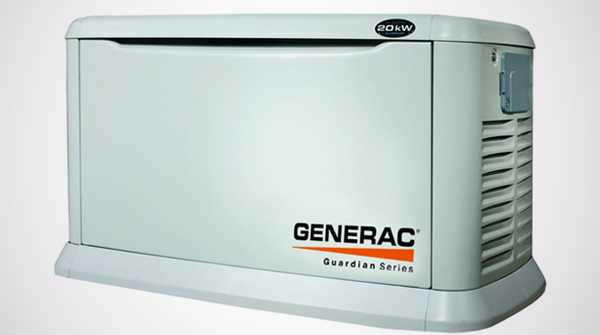Natural Gas Power Generator

* This site contains affiliate links for which we may be compensated.
Depending on the type of generators, there are two classifications. Portable and commercial also known as standby generators. A portable generator produces enough power to homes (but are usually fairly large space consumers in the yard) whereas a commercial generator provides enough electricity to power larger buildings, such as hospitals, banks and stores, and are as large as homes in space availability. A natural gas power generator is designed to turn on when there is a power outage. They only run during emergency situations. A person can buy a generator to power a whole house or just the necessary appliances such as a few lights, the refrigerator and freezer and furnace.
How A Natural Gas Power Generator Works
There are some components that are responsible for certain things in a generator. These components are in every generator.
(1.)Engine-source of the input of energy
(2) Alternator-produces the electrical output of the electricity
(3) Fuel System- type of fossil fuel that is needed to create the supply demand. Most portable generators will last up to 6-8 hours at a time.
(4) Voltage Regulator-regulates the voltage output of the generator
(5) Cooling and Exhaust Systems-cooling system to ensure no over heating of the generator.
(6) Lubrication System-oil used to keep all moving parts lubricated
(7) Battery Charger-the start button of any generator is battery powered
(8) Control Panel- the user interface of the generator which controls the provisions of the electrical outlets and other components
Pros of a Natural Gas Power Generator
The biggest advantage to natural gas generators is that you can install the generator directly into the home’s natural gas fuel source, if the home already uses natural gas as the main fuel source. Using a natural gas generator burns cleaner and is more efficient than that of gas powered generators. It also has the advantage of longer generator engine life because it is a cleaner form of fuel. Natural gas is the cleanest burning economical and environmental source of energy.
Maintenance and installation of a natural gas powered generator is very low compared to other fuel type generators. These generators are low maintenance with the added ability of being installed with low cost as well. Due to the maintenance of natural gas fuel, it is considered a more environmentally friendly choice because the emission levels compared to gasoline or diesel which is dated and documented by the U.S. Department of Energy.
The second advantage of natural gas powered generators is the noise level. Compared to diesel or petrol powered generators, the natural gas generator runs much quieter and is not considered a noise disturbance to neighbors and other noise regulations. Natural gas generators use less fuel per kilowatt of energy than other fuel type generators.
Cons of a Natural Gas Powered Generator
The largest downfall of having natural gas power generators is the cost of natural gas. The cost per gallon of natural gas is more compare to standard gas. However, running a natural gas generator for more than 500 hours yearly is cost-effective and reduces even that of the current electrical bill used daily.
Space is another downfall when considering a natural gas generator, as they are quite large and are not generally portable, (unless it is a small functioning generator). These generators are also to be installed at least ten feet away from the home or building due to carbon monoxide issues.
Buying Guide/Tips
Buying natural gas powered generators may have pros and cons but for many it is considered a personal choice towards their lifestyle. There are many available companies online as well as hardware stores that have the expertise to help in any matter towards getting the right generator for your needs. The general cost of natural gas generators are around $600.00 for a small 5kW, and for an upper scale more powerful generator from 15kW to 60kW costs $1500.-14,000.00 respectively.







